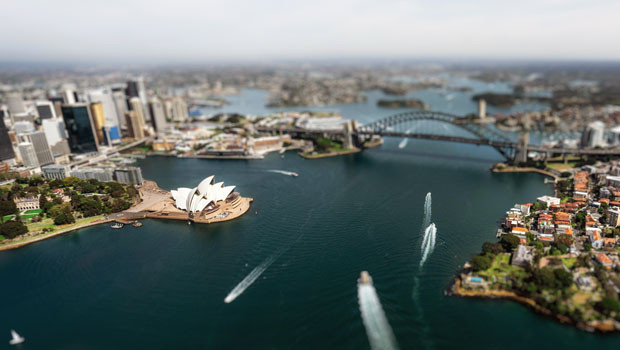Asia report: Markets mixed as Australian inflation tops forecasts

Asia-Pacific markets ended the day with mixed results as investors evaluated economic data and corporate performances across the region.
Australia was in focus, after its latest consumer inflation reading came in slightly above expectations, as investors also digested minutes from the Reserve Bank’s last meeting.
Stephen Innes, managing partner at SPI Asset Management, said markets in the region were likely to be treading cautiously.
“Two key factors are set to keep traders on their toes - lingering jitters over the US economy’s health and the high-stakes earnings report from Nvidia due later in the day,” he said.
“But let’s not forget the elephant in the room - China’s floundering economy, which casts a long shadow over the region.
“Sure, US and global stocks edged higher on Tuesday, but let’s not get carried away.”
Innes noted that Treasury yields barely budged, quipping that it was “hardly a green light” for Asian investors to hit the gas.
“With macro catalysts in short supply, expect regional news flows to take centre stage today, with China’s economic struggles adding an extra layer of uncertainty.”
Markets mixed after strong showing on Wall Street overnight
Japanese markets were positive, with the Nikkei 225 rising 0.22% to 38,371.76 and the Topix up 0.42% to 2,692.12.
Notable gains on Tokyo’s benchmark were seen in Rakuten, up 9.19%; Lasertec, ahead 4.19%; and Advantest, which was 4.18% higher.
Conversely, Chinese indices faced declines - the Shanghai Composite fell by 0.4% to 2,837.43, while the Shenzhen Component decreased by 0.31% to 8,078.82.
Major losses in Shanghai were seen in Jiangsu New Energy Development, down 10%; Suzhou Institute of Building Science, off 9.97%; and Fujian Kuncai Material Technology, losing 7.59%.
In Hong Kong, the Hang Seng Index dropped by 1.02% to 17,692.45.
Significant losses were observed in Nongfu Spring, China Resources Power, and China Resources Land, which were down 10.43%, 5.43% and 5.22%, respectively.
South Korean markets were nearly flat, with the Kospi edging up by 0.02% to 2,689.83.
Hands Corporation led the gainers with a notable rise of 27%, followed by Yuhan, up 20.44%; and JW Pharmaceutical, which was 8.51% firmer.
In Australia, the S&P/ASX 200 saw a marginal gain of 0.003% to close at 8,071.40.
The slight uptick came despite inflation data revealing a higher-than-expected rise in July.
Gains in Sydney were led by ZIP Co, Perseus Mining and Resmed, which were ahead a respective 13.88%, 5.91% and 5.57%.
New Zealand’s S&P/NZX 50 inched up by 0.16% to 12,470.60, bolstered by gains in NZX, up 6.35%; Tourism Holdings, ahead 4.55%; and Scales Corporation, which was 4.36% firmer.
In currency markets, the dollar was last 0.13% stronger on the yen, trading at JPY 144.14, while it advanced 0.09% against the Kiwi to NZD 1.6009.
The greenback was 0.02% weaker on the Aussie, however, last changing hands at AUD 1.4718.
On the oil front, Brent crude futures were last down 0.83% on ICE at $78.89 per barrel, and the NYMEX quote for West Texas Intermediate was 0.91% lower at $74.84.
Inflation falls, but still tops expectations in Australia
In economic news, Australia's consumer price index (CPI) rose 3.5% year-on-year in July, surpassing the 3.4% forecast by economists polled by Reuters.
It was, however, down from 3.8% in June, and marked the lowest CPI reading since March.
The Reserve Bank of Australia’s minutes from its most recent meeting were also released.
They indicated that the central bank had deliberated over increasing interest rates as part of its strategy to control inflation, although it ultimately chose to keep the cash rate on hold at 4.35%.
Reporting by Josh White for Sharecast.com.